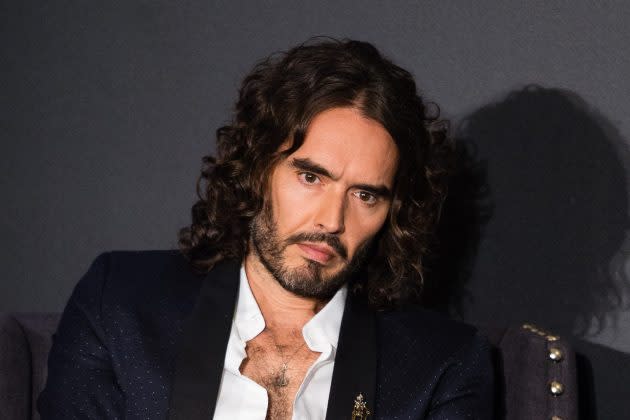Russell Brand Revelations Have Failed To “Shift The Dial” On Harassment In Film & TV, Bectu Research Finds

The overwhelming majority of workers in UK film and TV have witnessed or experienced sexual harassment, according to a survey from Bectu, which found that high-profile cases like Russell Brand have done little to “shift the dial.”
Almost 100% of those working in film, 96% in TV drama and 92% in unscripted, who were responding to a union survey of the creative industries, which includes film and TV, said ‘yes’ to having seen or experienced “bullying or harassment on grounds of their sex or gender in the workplace.” The figure was slightly lower (83%) for those working in broadcasting.
More from Deadline
Respondents felt that high-profile cases such as that of former TV presenter Brand have done little to “shift the dial,” Bectu said, with only 14% saying these incidences have improved employers’ responses to sexual harassment in the creative sector. Brand has been investigated by the police, the BBC, Channel 4 and Banijay. He vehemently denies all allegations and claims against him and says all relationships were consensual.
Around 84% said the sector “needs an independent body to investigate, report and prevent harassment,” which has recently been forged in the form of the newly-established Creative Industries Independent Standards Authority (CIISA). Only 13% of UK creative workers were confident that the industry is taking effective action to deter unwanted behaviours at work. Approximately 85% of those surveyed had experienced or witnessed an incident of sexual harassment in their place of work, and for half of those surveyed, incidents had occurred at a work-related social event.
The alarming research comes as Bectu calls on all broadcasters, studios, streamers, production companies and other creative industry bodies and employers to financially back CIISA, although a number already have.
A number of freelancers spoke anonymously for the survey. One said they had been “raped on a film by the director,” “been shown pornography by a presenter” and “seen a man from the crew masturbating in the compound women’s loos.”
Another said “a senior manager witnessed another colleague forcibly kissing me during a work social event” but this colleague, a “known offender,” was subsequently given a “full-time position.”
Bectu Head Philippa Childs said: “It’s no secret that sexual harassment remains a scourge on the creative industries. While we hear lots of warm words and well-meaning policies and procedures abound, it is clear that a radical step-change is needed for the sector to meaningfully tackle this issue.”
The research comes as Bectu rolls out a helpline for members who experience sexual harassment at work. Members can use the service to record their experiences and so help the union to track problem areas. They also have the option of talking to a trained staff member and, if they wish, discussing any next steps they may wish to take, for example raising the issue formally.
Best of Deadline
Sign up for Deadline's Newsletter. For the latest news, follow us on Facebook, Twitter, and Instagram.
Solve the daily Crossword

